Let’s have nuclear debate: CEOs call for energy revolution
Australia faces a worrying energy gap and as a nation we need to throw everything at the solution, top bosses have told The Australian’s 2024 CEO Survey.
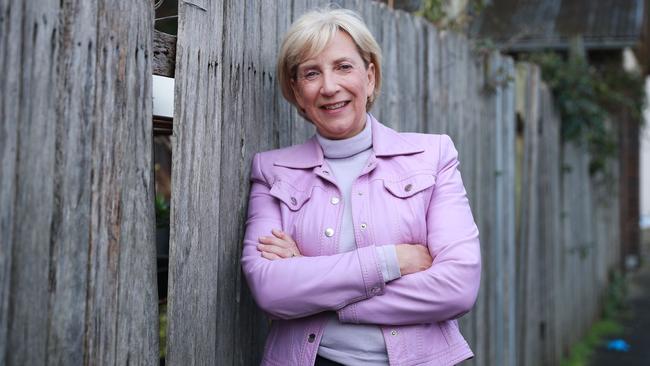
Business
Don't miss out on the headlines from Business. Followed categories will be added to My News.
Australia needs to take a more pragmatic approach to the energy transition – including embracing nuclear power – while moving forward in an “orderly” way rather than racing to meet a self-imposed deadline, the nation’s top bosses have said.
As Australia confronts a mammoth task ahead to achieve a once-in-a-generation shift in the energy market, all technology options should be on the table, including nuclear, they have told The Weekend Australian’s 2024 CEO Survey.
Seventy leaders from companies including BHP, Commonwealth Bank, Wesfarmers and Woodside responded when asked their views on a range of topics including the economy, the energy outlook and reform. The responses represent the most comprehensive snapshot of the mood of corporate Australia going into the new year.
The CEOs say the economy remains surprisingly resilient heading into 2024, although many expect the next six months will be critical to navigate as successive interest rate hikes start to bite.
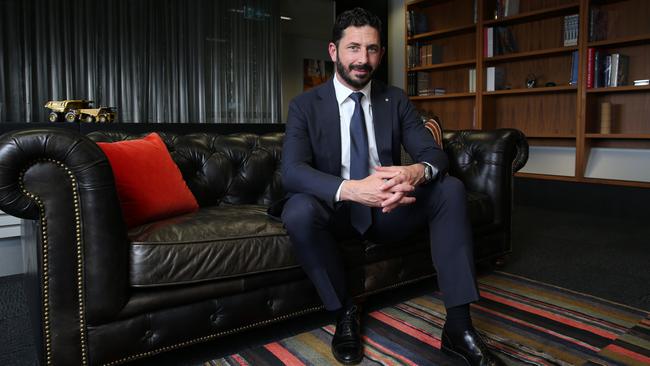
Energy cost and reliability remain a major concern among the nation’s business leaders, particularly with a focus on ambitious renewable targets potentially doing more harm than good. Top executives running companies across all sectors of the economy have expressed doubts around the nation hitting its 2030 targets for carbon reduction. CEOs strongly support the need for Australia taking steps to move ahead with the transition to pull carbon out of the system but by taking a more considered approach.
“Setting a target so far in advance, reliant on many initiatives outside our control, is more an ambition than a plan. It is going to be far more costly and challenging to make the transition than governments have assumed,” Seven Group chief executive Ryan Stokes said.
Mr Stokes, whose investments cover mining, energy, building materials and media, said the energy transition needed to be framed with a social and economic lens.
“We have to explore all the options, that means considering nuclear as a potential emission-free baseload source of power,” he said.
“For the energy transition to be truly sustainable, we should aspire for the environmental benefits to also enhance the collective standards of living, while delivering better economic outcomes.”
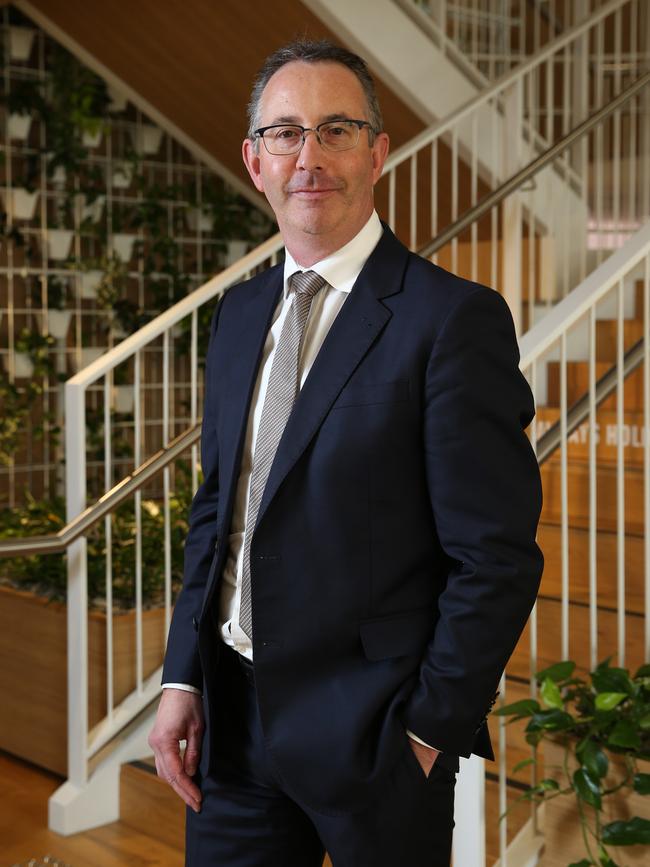
This week, Australia’s energy regulator, the Australian Energy Market Operator, stepped up warnings about preparedness for a green grid, saying the pace of rollout of new transmission lines needs to double or the country risks blackouts. The transmission challenge and getting support for new construction represents a new complication in keeping the grid running when coal power stations are retired from the end of the decade, AEMO said. Australia has pledged to slash emissions by 43 per cent by 2030, with the shift to renewable energy expected to play a big role in this.
EnergyAustralia chief executive Mark Collette said the biggest challenge in moving to net zero was around maintaining affordability and reliability of the power network. While it sounds simplistic, the best way to do this is to build a new net zero system before closing the existing system, he told The Weekend Australian.
“The scale of the transformation needed to hit the targets by 2030 is hard to overstate,” Mr Collette said. “For example, Australia needs to add 1.5 times the current renewable energy production in six years – noting the existing stock took 20 years plus to bring to life.”
Rio Tinto chief executive Jakob Stausholm said Australia needs to make sure it grasps opportunities and does not price itself out of the market.
Priorities should focus on getting a competitive firmed energy to underpin the industrial base of Australia and the transition to cleaner energy.
“You cannot have industry in the longer term without a competitive and effective power grid,” Mr Stausholm said.
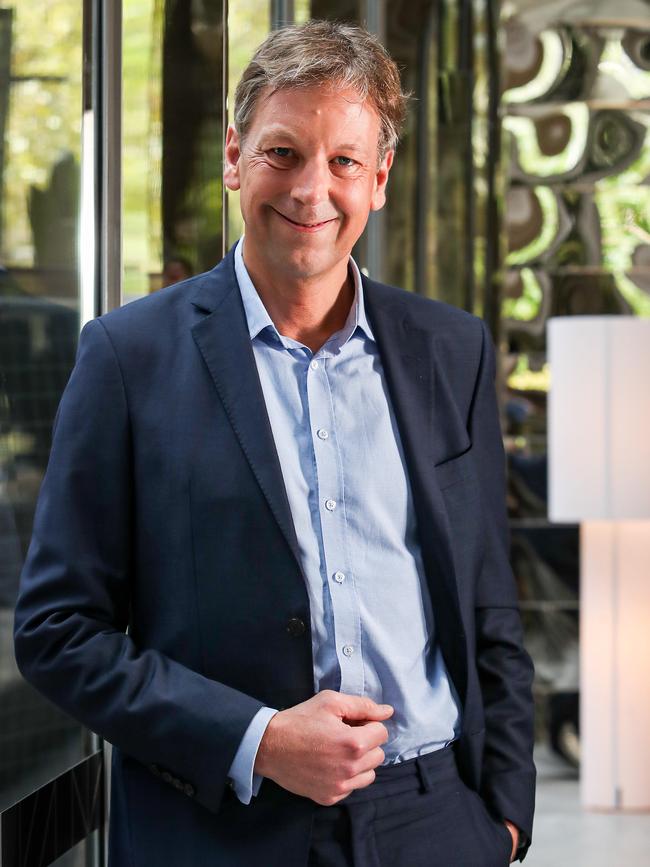
Those at the front line said to keep the energy transition on track, Australia needed to prioritise and fast track approvals for projects that are most readily achievable.
“This would mean an immediate focus on projects that can utilise existing infrastructure such as transmission connections,” AGL Energy chief Damien Nicks, said.
With AGL seeking to get its own generation and energy storage projects underway, including at its existing coal-fired power station sites, Nicks said the current time for planning, approval and delivery is too long.
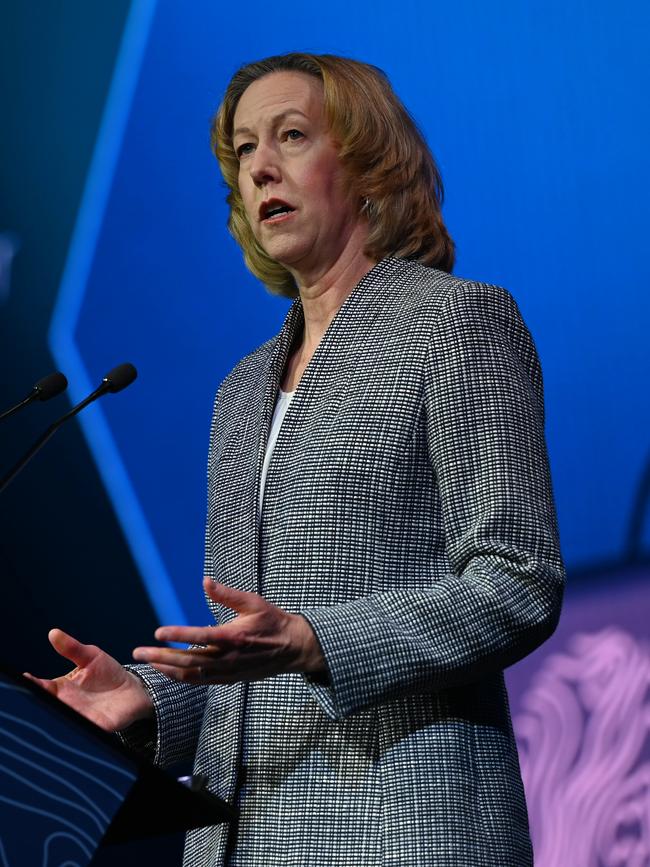
“While it’s important there are robust planning and environmental approval processes in place, the need for the transition to make significant gains over the next six years means that efficiencies in prioritising renewable and storage projects in the planning process – which today can take longer than three years – and a streamlined connection process (which can take more than one year) is needed to keep the transition on track,” Mr Nicks said.
Lynas boss Amanda Lacaze said: “Australia also needs to be able to have a grown-up discussion on the role that new generation nuclear energy options could play in the energy mix.”
She said the private sector couldn’t do all the work itself, with a role for government in helping to promote an orderly transition.
News Corp Australia chief executive Michael Miller backed calls for politicians to at least be open to the discussion about nuclear, rather than flatly ruling it out.
“To remain a world-leading economy we need to have the debate about alternative energy sources, and that includes the nuclear option, which much of the world has successfully adopted in some form,” Mr Miller said. News Corp Australia is the publisher of The Weekend Australian.
‘Stand ready’
Paul Schroder, who heads up the $300bn AustralianSuper, said for the nation to hit its zero reduction targets, it will require intensive collaboration and coordination between government, industry, investors and the broader community.
“We believe a smooth and orderly net-zero transition over time will deliver the best investment outcomes for members. We stand ready to invest where and when it is suitable,” Schroder said.
The AustralianSuper boss also urged patience for some businesses in the middle of the transition. This includes carbon-intensive energy sectors and hard-to-abate industries, that need to transform their business models and adapt to new technologies, he said.
ANZ chief executive Shayne Elliott said this was also a moment for Australia to embrace. Banks and other financiers had a big role to play in greening the power grid.

“It’s relatively easy to run away from a problem and say: these are all the things we’re not going to do. We prefer to focus on the things we are going to do and how we’re going to help emitters reduce their emissions. We’ve got to work together,” the ANZ boss said.
“Let’s not forget that this energy transition represents an incredible opportunity if we get things right.”
Luke Anear, founder of the $3bn tech start-up Safety Culture, said Australia should already be planning for the growth in demand energy in the future, not just meetings today’s energy needs.
“The government has a big role to play in facilitating the delivery of low-cost power so that we can manufacture products competitively and develop as a nation. We can’t do this from coal, and we can’t do this from solar and wind alone.
“We need a combination of solutions, but I think nuclear energy needs to be part of the solution, and we’ll see the countries that are building nuclear plants accelerate ahead of those who don’t,” Mr Anear told The Weekend Australian.
Woodside chief executive Meg O’Neill said policymakers needed to recognise that natural gas had a role to play in hitting transition targets and this meant that Australia needed access to affordable, reliable gas supply.
“The biggest shift required to achieve Australia’s 2030 targets will be moving away from coal and towards grids powered by renewables, backed up by gas,” Ms O’Neill said.
Originally published as Let’s have nuclear debate: CEOs call for energy revolution





